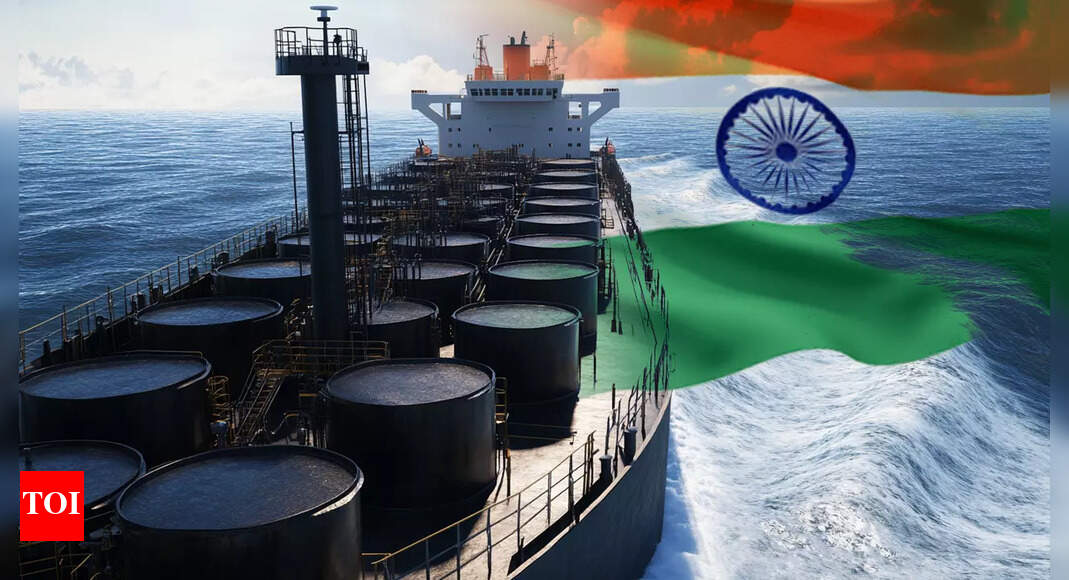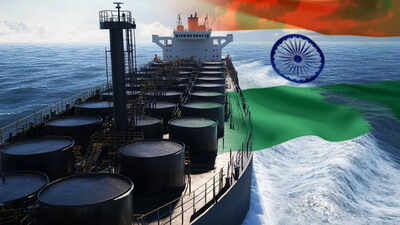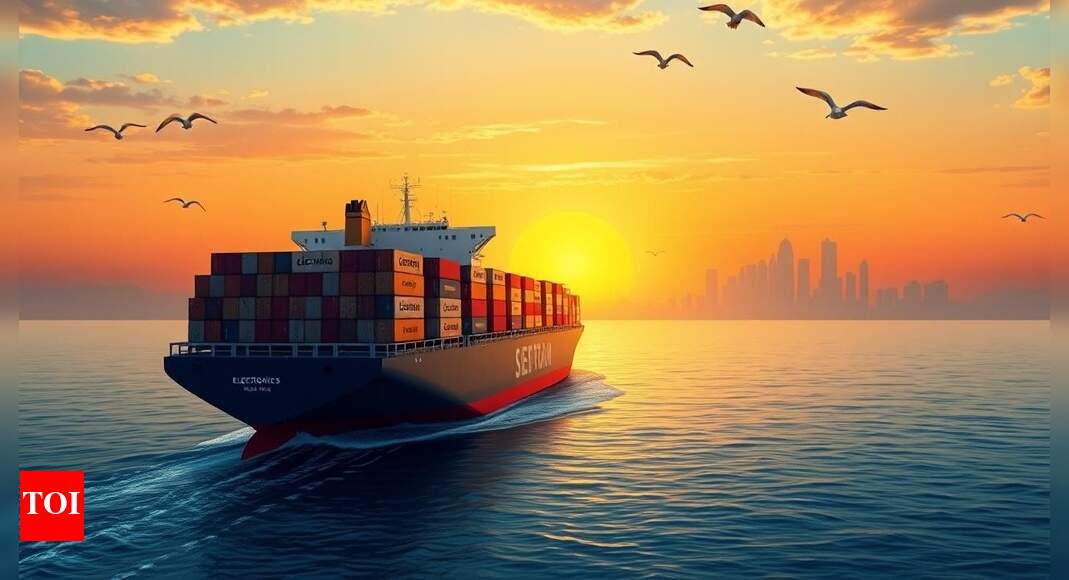Russia oil sanctions by European Union: The EU implemented sanctions on Friday which also target a Rosneft-owned Indian oil refinery and reduced the oil price ceiling as part of heightened measures against Russia regarding the Ukraine conflict.The latest sanctions package includes additional banking limitations and restrictions on fuel products derived from Russian crude oil.The adjusted oil price ceiling, presently fixed at $60 per barrel, will compel Russia to offer its crude at lower prices to nations such as India. Being the second-largest consumer of Russian oil, India is positioned to gain advantage from this development, according to a PTI report. Russian crude presently constitutes approximately 40% of India’s overall oil purchases.“For the first time, we’re designating a flag registry and the biggest Rosneft refinery in India,” EU foreign policy chief Kaja Kallas said in a post on X.Rosneft maintains a 49.13% ownership in Nayara Energy Ltd, previously known as Essar Oil Ltd. Nayara operates a 20 million tonne annual capacity oil refinery in Vadinar, Gujarat, alongside managing more than 6,750 petrol stations.Also Read | Russia oil squeeze: Trump’s 100% tariff threat – should India panic?A consortium investment vehicle, Kesani Enterprises Company, maintains a 49.13 per cent ownership in Nayara. The ownership of Kesani is divided between Russia’s United Capital Partners (UCP) and Hara Capital Sarl, with the latter being a complete subsidiary of Mareterra Group Holding (previously known as Genera Group Holding S.p.A.).Due to EU sanctions, Nayara faces restrictions on exporting petroleum products like petrol and diesel to European nations.“We are standing firm. The EU just approved one of its strongest sanctions package against Russia to date,” Kallas said. “We’re cutting the Kremlin’s war budget further, going after 105 more shadow fleet ships, their enablers, and limiting Russian banks’ access to funding.”The announced sanctions included restrictions on Nord Stream pipelines and a reduced price ceiling for Russian oil exports.
Sanctions on Russia Oil
In December 2022, G7 nations established a $60 per barrel price limit on Russian oil sales to third countries. This regulation permitted Western insurance and shipping services only when oil transactions occurred at or below the specified price. The initiative aimed to constrain Russian oil revenues whilst preserving global energy supply stability. However, the measure received criticism for not achieving its intended objectives effectively.The European Union and Britain advocated for reducing the price ceiling, particularly as declining global oil prices had rendered the existing $60 cap largely insignificant.The new price cap, though not explicitly stated by Kallas, is expected to be established between $45 and $50 initially, with systematic reviews occurring at least twice annually to reflect market dynamics.Also Read | India-US trade deal: India wants Donald Trump administration to offer tariff rate lower than Indonesia; eyes competitive advantageIndia, whilst potentially benefiting from reduced prices, faces uncertainty regarding continued imports due to possible US intervention. President Donald Trump‘s recent statement indicated that countries purchasing Russian exports might encounter sanctions or significant tariffs if Russia fails to establish peace with Ukraine within 50 days.
Effectiveness of Sanctions on Russia
The Russian approach to oil supply to India has complete delivery services, including vessel transport and insurance coverage. To navigate sanctions, Russia maintained crude invoice prices under $60 per barrel whilst implementing elevated transport fees. This strategy enabled Russia to achieve near-market prices despite the imposed cap.The effectiveness of the oil price cap was questioned since Russia transported substantial crude volumes through a ‘shadow fleet’—vessels functioning independently of G7-based shipping services. Reports indicated that a considerable amount of Russia’s seaborne oil shipments utilised tankers without flags, ownership, or operations linked to G7, EU, Australia, Switzerland, or Norway, whilst avoiding insurance from Western protection and indemnity organisations.The price cap’s limited impact was evident as Russia continued crude transportation via a ‘shadow fleet’ – vessels operating autonomously from G7-based shipping services. Documentation showed significant Russian seaborne oil exports utilising tankers neither flagged, owned, nor operated by entities based in the G7, EU, Australia, Switzerland, or Norway, additionally avoiding Western protection and indemnity club insurance.The expansion of Russia’s shadow tanker fleet coincided with narrowing discounts on its crude oil – shifting from unprecedented levels of approximately $40 per barrel below Dated Brent in 2022, following the Ukrainian invasion, to current differences of merely $3-4 per barrel.“We are putting more pressure on Russia’s military industry, Chinese banks that enable sanctions evasion, and blocking tech exports used in drones,” Kallas said. “Our sanctions also hit those indoctrinating Ukrainian children. We will keep raising the costs, so stopping the aggression becomes the only path forward for Moscow.”Also Read | ‘No legal basis’: Amidst India-US trade deal talks, America says India has no grounds for retaliatory tariffs at WTO; here’s what the issue is aboutThe European Union sources petroleum products such as diesel and petrol from India. Indian refineries purchase substantial quantities of Russian crude oil, process it into various fuels, and export these refined products to EU nations.Russia’s economic stability relies heavily on oil revenue, enabling President Vladimir Putin to fund military operations whilst maintaining domestic price stability and preventing currency devaluation.The EU has implemented additional measures, including sanctions on over 400 vessels within Russia’s concealed oil tanker fleet, along with associated entities and traders. The bloc has expanded its list of restricted exports used in warfare and imposed sanctions on organisations in China and other locations suspected of helping Russia circumvent trade and energy restrictions.The sanctions extend to the Nord Stream pipelines connecting Russia and Germany, aiming to prevent future revenue generation. These natural gas pipelines, though constructed to supply Germany, remain non-operational.The measures also focus on restricting Russia’s banking operations, limiting the Kremlin’s fundraising and financial transaction capabilities. Two Chinese financial institutions have been included in these restrictions.




